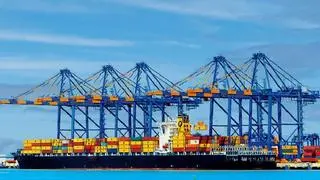Solvent extraction units are caught in a peculiar situation. While the Centre has exempted de-oiled cakes under GST, inability to claim full credit on input tax paid on oil seeds will likely force extraction units to pass on the higher cost to the poultry and cattle farming sector by increasing the price of de-oiled cake. An uptick in domestic prices can in turn lower India’s competitiveness, hitting exports of de-oiled cake.
After a steady fall in exports of oilmeals since 2013-14, there was a sharp comeback in 2016-17 due to a fall in prices. If domestic prices rule higher than international prices, exports could once again take a knock.
GST rulesUnder GST, input for solvent extraction, say, soya beans, will be taxed at 5 per cent, irrespective of whether sourced from farmers directly, APMCs or registered dealers. Soya solvent extracted crude Oil / refined Oil will also be taxed at 5 per cent. Soya de-oiled cake, on the other hand is exempted or nil rated under GST.
While the Centre’s move to exempt de-oiled cake is well intentioned, non-availability of input tax as credit has played spoilsport. While extractors buying oilseeds will pay 5 per cent GST, the entire input tax credit will not be available, as oil cakes are exempt under GST.
In India soybean is mainly used for crushing to get the meal. The oil recovery is around 17-18 per cent while the meal forms around 80-82 per cent. Soya refined oil revenue forms 30 per cent of the total revenue by value, while soya de-oiled cake revenue forms 70 per cent.
According to the Solvent Extractors’ Association, at the current market prices of soya seed, soya refined oil and soya de-oiled cake, the part of the input tax that is ineligible for refund will be ₹1,003/Ton of seed crushed (see table).
Extraction units will likely pass on this input tax retention cost to the poultry and cattle farming sector by increasing de-oiled cake prices.
Interestingly, even under the earlier VAT regime, the industry faced similar issues. However, actions taken by various State Governments offered relief to the industry. For instance, Madhya Pradesh, Maharashtra and Telangana had tweaked refund rules, offering full input tax credit for oil cake.
Karnataka and Rajasthan, on the other hand, imposed 1 per cent tax on de-oiled cake.
UncompetitiveThere has always been a good export market for Indian soymeal, particularly from South East Asian countries, as these are non-genetically modified (GM) soy meal. However in the last few years, exports took a knock due to the higher price of soymeal in India compared to other international markets.
However in 2016-17 and in the current fiscal year so far, exports have made a sharp comeback thanks to a decline in prices. According to the Solvent Extractors’ Association’s latest data, FOB/FAS Indian soybean meal quoted at $390 per tonne as of July 6, sharply down from $492 per tonne in June 2016. But Argentina origin soybean meal CIF Rotterdam, which quoted at $350 per tonne as of July 2017, leaves little headroom for domestic prices to trend higher without impacting our competitiveness in international markets.
Taxing oil seeds at 0 per cent under the GST regime, or allowing for a full refund of input tax paid by the solvent extraction units, are among the suggestions put forth by the Solvent Extraction Industry to the GST council, to do away with the input tax retention cost.







Comments
Comments have to be in English, and in full sentences. They cannot be abusive or personal. Please abide by our community guidelines for posting your comments.
We have migrated to a new commenting platform. If you are already a registered user of TheHindu Businessline and logged in, you may continue to engage with our articles. If you do not have an account please register and login to post comments. Users can access their older comments by logging into their accounts on Vuukle.